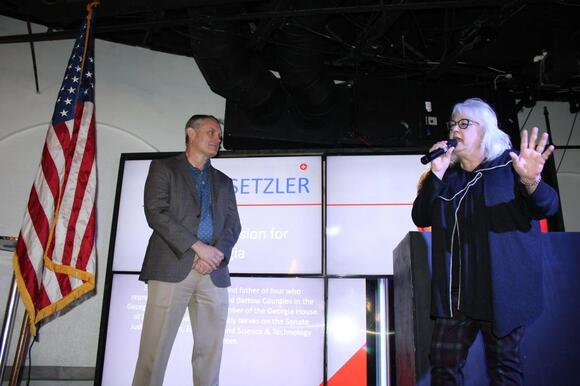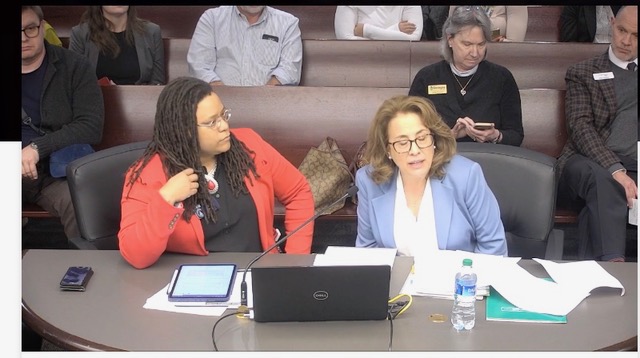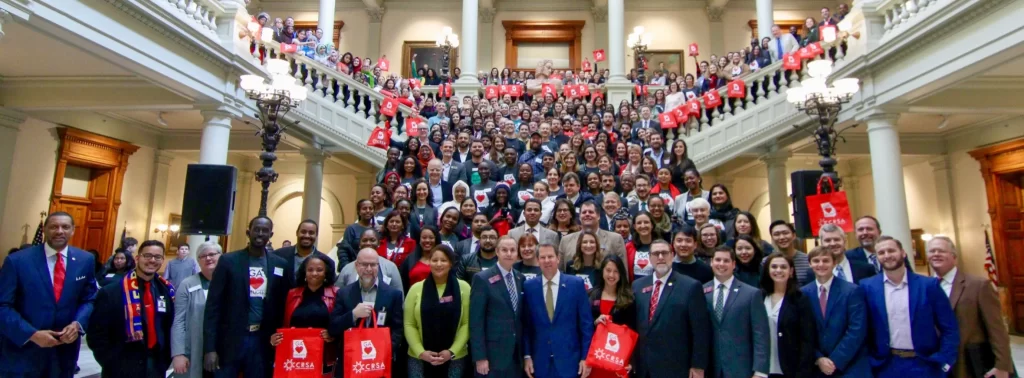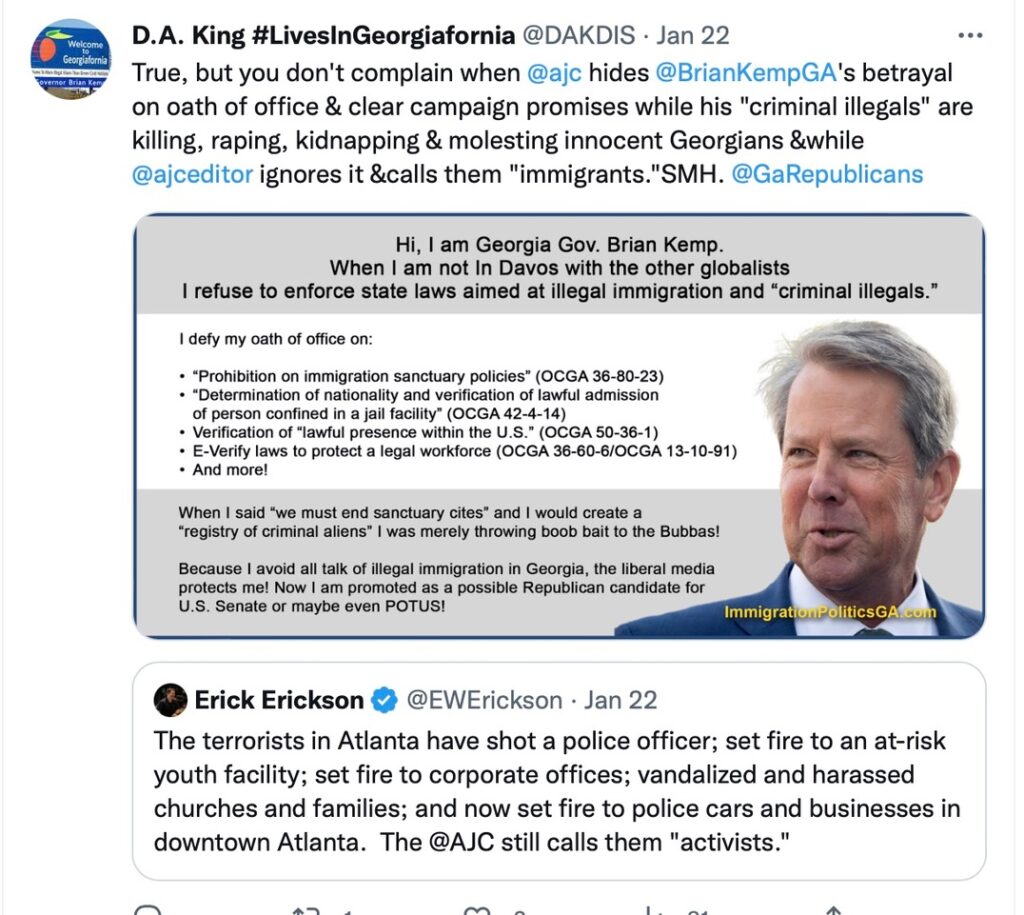
“The bill defines “parents” as “a biological parent, legal guardian, custodian, or other person with legal authority to act on behalf of a student.”
It took several years of work from pro-enforcement advocates, but Georgia’s pending “school choice” bill, SB 233 (LC 49 1473S) excludes illegal alien students. See lines 82 & 83. Because it is intentionally cryptic, we posted an easy to understand explanation elsewhere for curious readers.
School choice is a solid conservative idea if done responsibly – but the current version still doesn’t fit that description. Not for the first time, we note that SB 233 contains no exclusion for illegal alien “parents.” This writer predicts this easily remedied fact will be a significant problem for bill sponsors and Gov. Kemp when trusting GOP voters are educated on the details of the legislation.

The bill defines “parents” (on lines 37 & 38) as “a biological parent, legal guardian, custodian, or other person with legal authority to act on behalf of a student.” It makes the parent the applicant for the student to access the taxpayer funded “Promise Scholarship” benefit (see line 105).
Federal statistics reveal that over 300,000 illegal “migrants” entered the U.S last month (Dec. 2023) – more than the population of Savannah, Marietta and Warner Robins combined. Legislators ignore this reality at their political peril.
Hardworking Georgians will likely not take kindly to a GOP-pushed law that allows any illegals to apply for a discretionary taxpayer-funded benefit – including private school tuition.
- Related: Estimates are that 400,000 illegal aliens called Georgia home in 2018
The same taxpayers may have a strong objection to a law that names any illegally present “parent” as the “recognized recipient” of state funds for private school tuition as laid out in lines 126-129: “Any account funds directed to a participating school or service provider are so directed on behalf of the participating student’s parent, the recognized recipient of such participating student’s account funds, and wholly as a result of the genuine and independent private choice of the parent.”
More, from lines 208-211: “The commission shall develop a system for parents to direct account funds to participating schools and service providers by electronic funds transfer, automated clearing-house transfer, or another system that the commission finds to be commercially viable, cost-effective, and easy for parents of participating students to use.”

Lines 211- 214 create a scenario in which the state of Georgia could easily be in the position of sending tax dollars directly to illegal alien “parents” to reimburse them for out-of-pocket expenses and/or “certain qualified education expenses.”
It doesn’t take much imagination to realize that most conservative voters aren’t going to sit quietly while a law is put in place that would allow illegal aliens to serve on a school choice oversight committee either. But SB 233 does exactly that. “Parents” would serve on a parental review committee that would oversee eligible expenses for school choice benefits – see lines 238-240: “To assist in the determination of whether certain expenses meet the requirements to be considered a qualified education expense under this chapter, a parent review committee shall be established.”
And this from lines & 253-254: “The commission may request the (parent review) committee to determine whether an expenditure of account funds from an account qualifies as a qualified education expense under this chapter.”

More on parents’ participation: “(line 48) Qualified education expenses’ means any one or more of the following: … “Other expenses authorized by the State Board of Education or the commission; or Individual education expenses authorized by a majority of the parent review committee provided for in Code Section 20-2B-6 (lines 64-66).”
There are several commonsense solutions to all this. It seems that the simplest is to insert language into the bill that designates the “Promise Scholarship” school choice benefit as a “state grant.” That should require the applicant – the “parent” – to complete the “verification of lawful presence” process that is already in OCGA 50-36-1. Shorter: It would exclude illegal alien parents – if the law was enforced.
It is noteworthy that several inquiries have reportedly already been made to the Attorney General’s office asking if the school choice scholarship would be a state grant in the bill as is. I understand that the AG has informed more than one state legislator that the question would not be answered on a pending bill.
- A version of the above oped was originally posted on the subscription outlet James Magazine Online on January 5, 2024.
D.A. King is president of the Dustin Inman Society and proprietor of ImmigrationPoliticsGA.com












